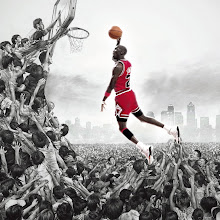How did Christianity change this culture?
The Sawi were a tribal people who had not been in contact with anyone outside of their microcosm. Their lives had not been altered in any way by the influences of the modern wold and they had been living as their ancestors had for hundreds of years. Their culture was one of mostly violence, distrust and also cannibalism with some superstition sprinkled on the top. At this stage all they probably cared about was either surviving or gaining pleasure, some of the primitive instincts. However they had not heard of the Word of God and they had no way of accepting Christ as their savior which meant that they were all doomed to eternity in the lake of fire.
Don Richardson and his wife Carol brought a doubled edged sword that was capable of penetrating through the thick armor of their barbaric society and finally land into their hearts. With the Word of God as his sole weapon, Don was able to convert these people who had never heard of God into strong spiritual Christians. With the help of Don, they were able to forfeit their old lifestyle and start a new one through Jesus Christ.
The Sawi were a primitive group of people who valued treachery, feared demons and spirits, kept souvenirs of their dead adversaries and even indulged in the consuming of human flesh. This all changed when Don and Carol came into their lives. Yes, they did initially change slightly to gain favor of the foreigners but the compelling power and love of Jesus Christ brought them to a point where they left behind their old traditions and starting to practice new ones.
With the help of Christianity a whole society was able to be saved. Not only that but the Sawi went from being a cannibalistic headhunting society to a Christian society with the largest circular building made with un-milled poles in the world.
Don Richardson and his wife Carol brought a doubled edged sword that was capable of penetrating through the thick armor of their barbaric society and finally land into their hearts. With the Word of God as his sole weapon, Don was able to convert these people who had never heard of God into strong spiritual Christians. With the help of Don, they were able to forfeit their old lifestyle and start a new one through Jesus Christ.
The Sawi were a primitive group of people who valued treachery, feared demons and spirits, kept souvenirs of their dead adversaries and even indulged in the consuming of human flesh. This all changed when Don and Carol came into their lives. Yes, they did initially change slightly to gain favor of the foreigners but the compelling power and love of Jesus Christ brought them to a point where they left behind their old traditions and starting to practice new ones.
With the help of Christianity a whole society was able to be saved. Not only that but the Sawi went from being a cannibalistic headhunting society to a Christian society with the largest circular building made with un-milled poles in the world.
